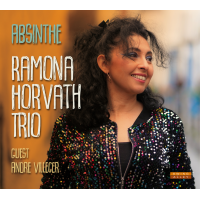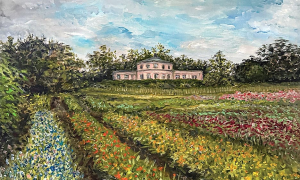
Politics highlight a faceoff of cool and hot in the United States' state of mind.
Forget about red state versus blue state, Prius versus Hummer, Wall Street versus Main Street or whatever other pop culture yardstick we've been using to measure the state of the nation recently. The real choice facing Americans this election year is much more simple:
Cool or hot?
Let me explain. Three-score years ago, or thereabouts, some cats named Miles, Dizzy and Charlie brought forth upon this continent (OK, actually it was the Three Deuces club in New York) a new musical style, conceived in heroin addiction and dedicated to the proposition that white people can't dance to fast rhythms. Bebop jazz was born, soon followed by its close cousin, beatnik culture. Together, they forged a new attitude that would define popular culture in the second half of the American Century.
That attitude, of course, was cool, or “cool pose" as the sociologists call it, and it has come back to haunt us this season, though no longer decked out in goatee and Jean Genet beret.
Sen. Barack Obama, according to the conventional wisdom's typecasting, is Mr. Ice, the coolest aspirant since JFK to 1600 Pennsylvania Ave. Calm under fire, slow to anger, he exudes a judicious, cerebral coolness that his critics see as downright aloof and even (shiver!) elite. At the opposite end of the temperamental spectrum, Sen. John McCain is frequently depicted as Mr. Hothead, percolating with righteous, passionate convictions that either could lead to decisive executive branch action or, some fear, spark a fateful presidential temper tantrum. So who will prevail in this campaign's cultural sideshow: Joe Cool, a.k.a. “Chiller Than Thou" to his detractors, or the volcanic maverick known in high school as “McNasty"?
An ascendant cool
Funny thing is, cool and hot frequently have swirled together in the American cultural cocktail, like Worcestershire sauce spicing up a frosty Bloody Mary. You might say they're codependents who need each other and are forever trading places in cyclical fashion. But at least since World War II, it's been cool, not hot, that has been ascendant. More than simply a way of dressing or deportment, cool in its purest origins relates to notions of handling grace under pressure, the ability to stare into the abyss without flinching. Think of Joe DiMaggio at the plate, brushing off the pressure of his record hitting streak, or Miles Davis at the quivering instant before launching into a free-form solo.
Yale University art professor Robert Farris Thompson traced cool back to the spiritual philosophies of 15th century West African peoples such as the Yoruba. While African and European notions of cool shared an idea of “coolheadedness" and “sang-froid," Thompson maintained that the African notion of cool went further and deeper.
In Africa, coolness is an all-embracing positive attribute which combines notions of composure, silence, vitality, healing and social purification.
Robert Farris Thompson--Yale University
In the United States, cool has been primarily associated with African American culture. In Cool Pose: The Dilemmas of Black Manhood in America, published in 1992, Richard Majors and Janet Mancini Billson described cool pose as:
The presentation of self many black males use to establish their male identity. Cool pose is a ritualized form of masculinity that entails behaviors, scripts, physical posturing, impression management, and carefully crafted performances that deliver a single, critical message: pride, strength, and control.
Richard Majors and Janet Mancini Billson
Cool gradually wove its way into the fabric of African American slave culture and its most distinctive cultural manifestation, the blues. But cool couldn't truly become Cool without Hot to provide a counterpoint.



























